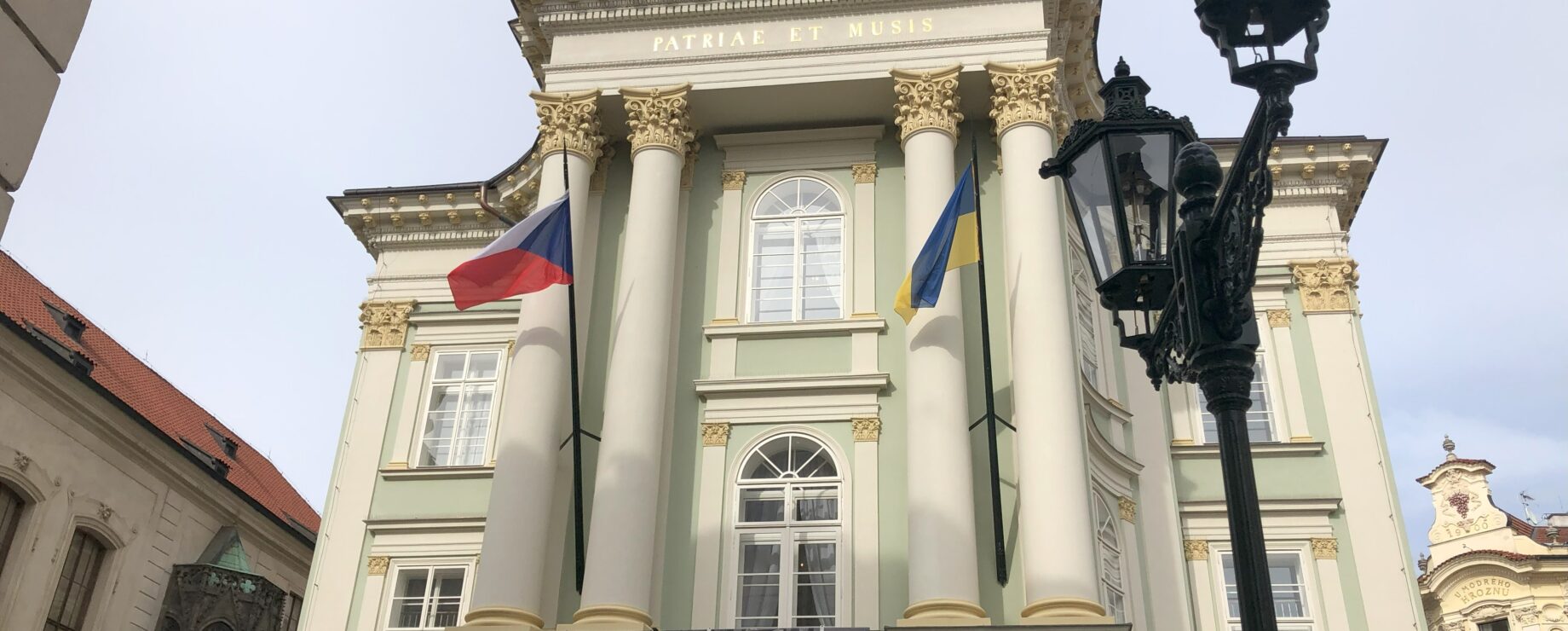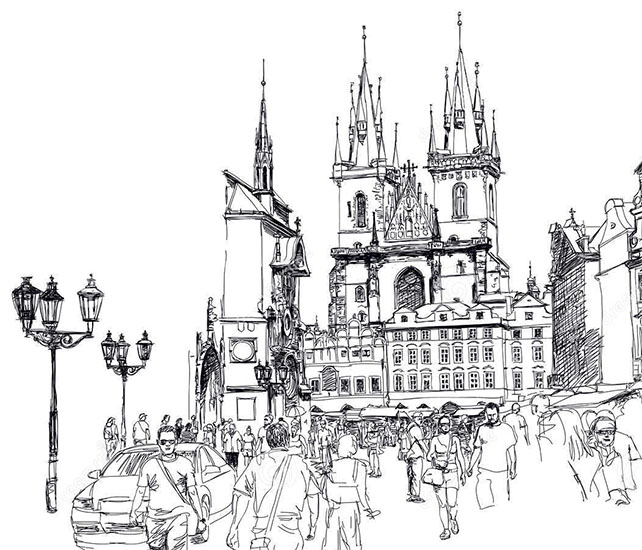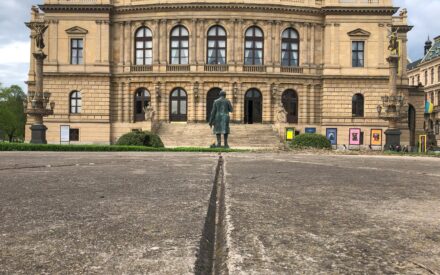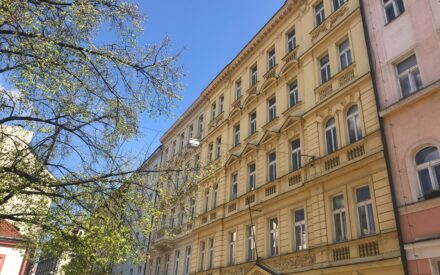
Stavovské divadlo (The Estates Theatre)
I thank you gentlemen, for your kind words. The real, genuine art is an expression of the nationality, and, at the same time, also true humanity. Genuine art, per se, is international in the true sense of the word. The German art will certainly receive due protection as you expect, not only in Prague, but across our whole republic. (Loud applause and shouting: “Hoch”). Unfortunately, our era is very difficult, and it may well be the case of “inter arma silent Musae” [In war, Muses are silent]. I would like to thank the Prague-based Germans for the trust they have given me. Please be assured that the Germans in our state will be granted full equality. (Thunders of applause, people shouting “Bravo”).
This record of the President T. G. Masaryk’s speech delivered on 23 December 1918 at the New German Theatre was published in the Lidové noviny daily the following day. Why did President Masaryk have to assure the Germans living in Prague they would be granted full equality?
The formation of the Czechoslovak Republic in October 1918 did not seem favourable for all the inhabitants of the Czech lands, the area that had been a part of the Austro-Hungarian Empire before World War 1. Especially German speaking citizens opposed the establishment of the new state and attempted to turn the tide. Mainly in the border areas, there were announcements of provinces supposed to join either Germany, or the newly established state of Austria. In December 1918, the Czechoslovak Army was sent to these areas with the mission to prevent secession of these territories and to calm the internal situation. German speaking citizens who lived in the Czechoslovak territory without feeling affiliation to it were worried how they would be treated in the new state. This was the reason for Masaryk’s speech at the New German Theatre. In the following years, Prague’s German theatres became venues showing foreign, Czech and German plays, operas, operettas and ballets, but also sites of nationalist conflicts and fights.
The Takeover of the Estates Theatre
After the formation of Czechoslovakia, the German theatre had two theatre buildings in Prague: the Estates Theatre (Royal Provincial German Theatre) and the New German Theatre. From 1918, there were attempts to take over the Estates Theatre for Czech theatre production as the premises of the National Theatre were no longer sufficient. Masaryk and some other government representatives were against the takeover and promised to find a new location for the National Theatre and grant funding for the construction of a new Czech theatre building. During the celebrations of Czechoslovakia’s second anniversary in October 1920, there were first pressure actions and memoranda initiated by the National Theatre’s Soloists’ Club and Czech legionaries who demanded the Estates Theatre be assigned to the National Theatre. This pressure escalated on 16 November 1920 when a manifestation was called to the Wenceslas Square in support of a Czech school in Cheb that was damaged by German speaking inhabitants as retaliation for the damage to the Joseph II memorial by Czech soldiers. The crowd marched from the Wenceslas Square to the Estates Theatre, entered the building with the help of legionaries and then forced the staff including the director to leave. On the very same day, the Bartered Bride opera (in Czech) was performed in the occupied theatre, and it was attended by notables including the Prague Mayor Baxa.
In December, the National Assembly started to discuss the takeover of the Estates Theatre. Masaryk himself appealed to the government to take steps to return the theatre to the Germans. Some of the participants of the takeover were sued, and after a trial taking one and half years, all of them were acquitted. In 1922, an agreement was made with the German theatre director for compensation to be paid for the Estates Theatre so that the German theatre could build a new site. Masaryk never entered the Estates Theatre again.[1]
[1] J. Ludvová: Až k hořkému konci: pražské německé divadlo 1845–1945, Praha: Academia, 2012.
Další místa na téma "Notable Women of German-Speaking Prague"



